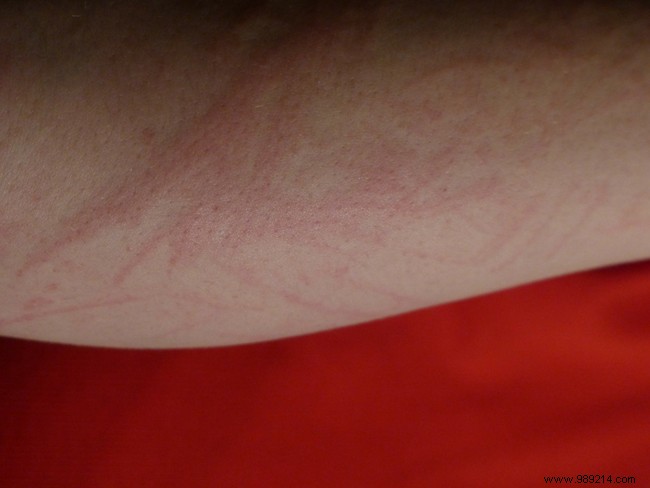 Allergies affect various parts of the body, with skin being one of the most common targets. As our largest organ and primary barrier against the environment, the skin often reacts first to potential threats.
Allergies affect various parts of the body, with skin being one of the most common targets. As our largest organ and primary barrier against the environment, the skin often reacts first to potential threats.
When the immune system overreacts to harmless substances known as allergens, it can trigger skin allergies. These manifest as uncomfortable symptoms like itching, redness, or rashes. In this guide, we'll explore the types of skin allergies, identify key allergens, and share dermatologist-recommended prevention and treatment strategies.
Skin allergies primarily fall into two categories: hives (urticaria) and eczema.
Hives represent an immediate allergic reaction, appearing within minutes to hours of allergen exposure. This inflammatory response causes raised, red welts accompanied by intense itching, resembling nettle stings—hence the name. Common triggers include:
A severe form, angioedema (Quincke's edema), involves deep swelling in facial tissues, lips, tongue, eyelids, or airways. This can obstruct breathing and requires immediate emergency care.
Eczema develops as a delayed reaction, typically days after exposure. It includes two main forms:

Allergens vary by individual sensitivity and can be categorized into three groups:
Found in indoor or outdoor air, these include dust mites, pollen, mold, and pet dander. While they often cause respiratory issues, contact with cat hair, for instance, can provoke hives.
These affect the digestive system but can trigger skin reactions. Common culprits are shellfish, peanuts, soy, tree nuts, cereals, eggs, lactose, and exotic fruits.
Chemicals in cosmetics, preservatives, plant extracts, jewelry (e.g., nickel), and certain fabrics or clothing like bras are frequent triggers.
Consult a dermatologist promptly for itchy, red skin to prevent complications. Treatments vary by severity, but identifying allergens through patch testing by an allergist is crucial.
Avoid known triggers rigorously. For emergencies like angioedema, call emergency services immediately and follow medical guidance.
Keep antihistamines on hand for acute hives and corticosteroid creams for eczema to reduce inflammation. Always seek professional advice to pinpoint causes and get tailored prescriptions.
Labeling laws now require allergen disclosure on packaged foods, and restaurants must display lists, empowering informed choices.